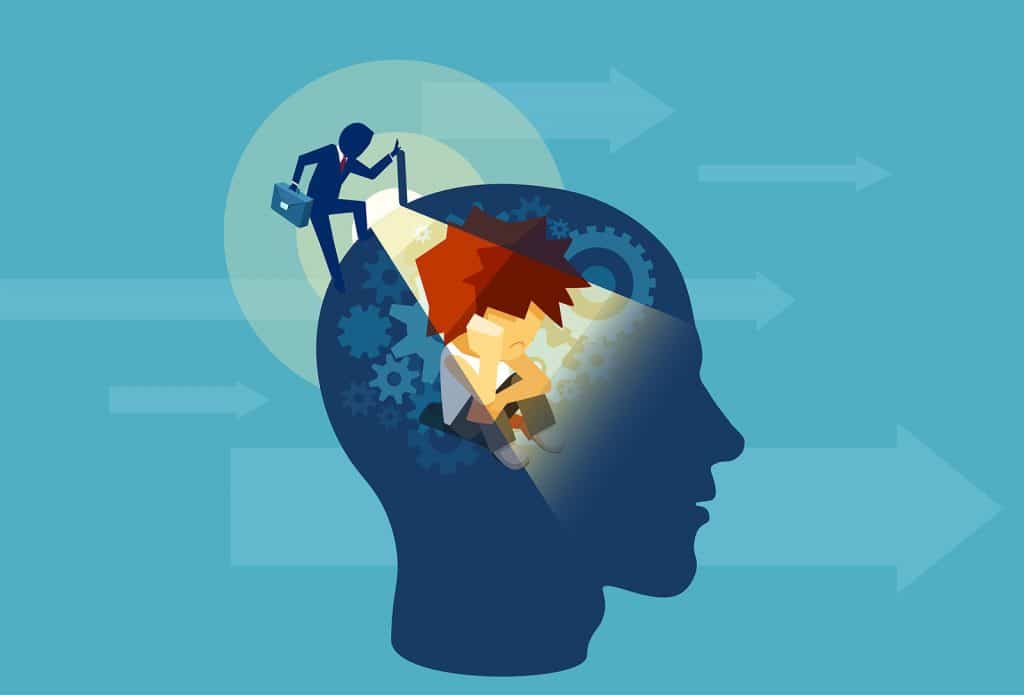Focalin and Adderall are stimulants that doctors commonly prescribe to treat ADHD. While these drugs can be very effective, they may present some risks. Patients want to get the most out of their medication while minimizing the risks associated with taking a prescription stimulant. For this reason, people who struggle with ADHD are often not sure whether they should take Adderall or Focalin to safely manage their condition. You don’t want to take the wrong medication, so check out this overview of Focalin vs Adderall if you have ADHD and want to learn more about your options.
Table of Contents [show]
What Adderall Is
Adderall is a combination of amphetamine and dextroamphetamine that doctors primarily prescribed to treat ADHD. This drug is a stimulant, so it increases the user’s heart rate and allows their brain to utilize more dopamine and norepinephrine. These natural hormones can improve the patient’s attention, motivation, and concentration. Adderall comes in immediate-release and time-release capsules. Immediate-release capsules work faster, but they also have a higher potential for misuse. Doctors prescribe different dosages based on the patient’s weight, health, and the severity of their symptoms, and they may adjust a patient’s dosage as they respond differently to the drug over time.
Side Effects of Adderall
This medication often causes sweating, rapid breathing, and increased heart rate. Many people liken the side effects of taking Adderall to drinking several cups of coffee. Some patients report irritability, insomnia, and restlessness. Taking Adderall may also result in upset stomach, nausea, and diarrhea in some individuals.
Risks of Adderall Misuse
Like most stimulants, Adderall has a high potential for addiction and misuse. Many people who don’t have ADHD use Adderall to study for tests or enhance their performance at work. Patients sometimes take more than the recommended dose to achieve greater productivity or enjoy a jolt of energy. Long-term misuse of Adderall may result in psychosis, cardiovascular problems, worse ADHD symptoms, liver damage, and other serious issues. Individuals with preexisting cardiac problems are at greater risk of heart attack, stroke, and increased blood pressure.
People occasionally crush short-release Adderall pills into powder and snort it. This heightens the effects of the drugs but puts the individual at a much higher risk of overdose. Some individuals take Adderall in an attempt to maintain their alertness while drinking copious amounts of alcohol. Misusing Adderall on its own is bad enough, but mixing it with alcohol may lead to alcohol poisoning, heart problems, and aggressive behavior.
What Focalin Is
Like Adderall, Focalin is prescribed to treat ADHD. Dexmethylphenidate, the sole active ingredient of Focalin, is a stimulant that affects the production of natural hormones in the brain. Most patients who take Focalin report better concentration and self-regulation. Like Adderall, Focalin comes in short-release and extended-release capsules.

Side Effects of Focalin
Many people who take Focalin report insomnia, nausea, headache, loss of appetite, dizziness, and weight loss. Moreover, many patients claim that Focalin puts them in a sedated state that suppresses their personality and makes them uninterested in the things that they usually enjoy. Some individuals also report feeling aggressive, depressive, or anxious when taking Focalin.
Risks of Focalin Misuse
Focalin is addictive, and doctors sometimes have to increase a patient’s dose after prolonged use for the patient to feel the effects of the drug. Taking large doses of Focalin or crushing it up and snorting it may cause feelings of euphoria and increase the user’s self-confidence and concentration. Because of this, Focalin abuse is common in the workplace and at parties.
Mixing Adderall and Focalin
Doctors haven’t found any notable drug interactions between Adderall and Focalin. Thus, it’s likely not a matter of life and death if someone accidentally mixes the two substances. However, the body has to work hard to process each of these drugs, so combining them over long periods may cause liver damage. Doctors do not prescribe Adderall and Focalin together, and combining these medications does not produce any benefits. Moreover, combining Adderall and Focalin doesn’t seem to result in any kind of high, so people generally do not mix these drugs intentionally or for recreational purposes. Focalin and Adderall share similar risks of long-term misuse and overdose.
Focalin vs Adderall
The intensity of certain symptoms can vary widely between individuals with ADHD. Thus, not every drug will have the same effect on every patient. Because of this, patients often rotate between medications until they find one that alleviates their symptoms with minimal side effects. While Adderall may be extremely effective for a patient, Focalin may not help the same patient at all. The opposite is also true for many ADHD patients. Since the effects of ADHD medications differ so drastically between individuals, when it comes to choosing the right ADHD medication, you won’t really know until you try different medications under your doctor’s supervision. Unlike drugs for other conditions, you can’t accurately gauge how ADHD medications will affect you simply by reading about them.
When your doctor prescribes a new medication, you should record all positive and negative effects in a journal every day. When you see your doctor again, you can reference this information as you try to figure out whether the medication is a good fit. If you experience uncomfortable side effects or don’t feel like a drug is working for you, then your doctor will either adjust your dose or prescribe another substance. Keep recording your experiences and coordinating with your doctor until you find a medication that alleviates your symptoms without terrible side effects. Under no circumstances should you take an ADHD medication that your doctor hasn’t prescribed.
Focalin and Adderall are both addictive substances that can cause organ damage and various mental problems when misused over long periods. Moreover, each drug presents a risk of overdose, which could lead to death, permanent organ damage, or brain damage. Thus, you must always strictly follow your doctor’s instructions when taking any ADHD medication. Even if you don’t overdose or notice negative side effects, misusing ADHD medications may exacerbate symptoms of ADHD over time and make the condition more difficult to treat.
Signs of Stimulant Addiction
It may be difficult to notice if someone with ADHD is misusing their prescribed Adderall or Focalin. However, the symptoms of stimulant abuse are more apparent in individuals who have not been prescribed these medications to treat ADHD. The most obvious symptoms of stimulant abuse include sweating, gastrointestinal problems, fast speech, decreased social inhibition, shaking, irritability, and restlessness. Individuals who abuse stimulants are at greater risk of developing psychosis and mood disorders.

The body metabolizes Adderall, Focalin, and other stimulants very quickly. Consequently, someone who habitually abuses stimulants may begin to experience early withdrawal symptoms within hours of their last dose. Early signs of stimulant withdrawal include vomiting, lethargy, hallucinations, anxiety, melancholy, insomnia, and irritability. These symptoms may suddenly go away if the individual takes a dose. Therefore, you should look for abrupt changes in a person’s mood if you suspect that they are struggling with stimulant addiction.
Risks of Stimulant Detoxification
Detox happens when the body tries to adjust its basic functions after it stops receiving regular doses of an addictive substance. Symptoms of withdrawal directly result from the detox process. Depending on the severity of an individual’s addiction and their overall health, it can take several months for the body and mind to completely detox. However, the most dangerous stages of detox occur within the first week. For up to 72 hours after the last dose, patients will experience the early symptoms of withdrawal previously mentioned.
Up until the end of the first week after the last dose, patients will struggle with severe anxiety, restlessness, insomnia, and poor concentration. After the first week, withdrawal symptoms will slowly subside. During the first week of detox, there is a risk of various medical complications. Patients will also be less likely to make good decisions while struggling with mood-related withdrawal symptoms. The early stages of detox can be incredibly agonizing, so many patients relapse at this stage when they try to quit stimulants on their own.
Due to the high risk of relapse and the potential for medical complications, it is much better for patients to enroll in a detox program at a reputable treatment facility. A high-quality detox center has medical staff and addiction professionals available to make sure that the detox process goes as smoothly as possible. They will be there to comfort the patient and respond to any emerging medical issues. On top of that, a detox center prevents the patient from accessing addictive substances, so they will not be tempted to relapse when withdrawal symptoms become difficult to bear.
Treatment Programs for Stimulant Abuse
After going through detox, patients can enroll in a residential treatment program or an intensive outpatient program. A residential program will remove the patient from potential triggers and allow them to figure out their future plans and arrangements while they receive high-quality addiction treatment. An intensive outpatient program allows patients to receive a high standard of care while also fulfilling their everyday obligations.
Both programs include several hours per week of individual therapies, group therapies, and holistic therapies. These therapies help patients target the root causes of their addictive behaviors and find healthy coping mechanisms to maintain long-term sobriety. Patients usually enroll in a standard outpatient program once they make it through detox and intensive programs. After building the necessary skills and plans to maintain sobriety and connecting with addiction resources in their area, patients will eventually stop attending rehab altogether.

Get the Right Treatment Today
Stimulant addiction is a big problem that won’t just go away on its own. A stimulant overdose can quickly lead to death, and the long-term effects of stimulant abuse can make it very difficult for an individual to enjoy a happy and healthy life. Fortunately, a high-quality rehab center can help patients get through detox and build the necessary skills and mindset to enjoy a healthier lifestyle. Time is of the essence, so if someone in your life struggles with stimulant abuse, then you need to call Long Island Treatment Center today to help them overcome their addiction before it’s too late.


